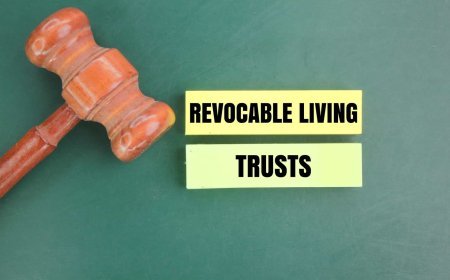Link Building Strategies: A Guide for 2025

In the ever-evolving landscape of digital marketing, link building remains a cornerstone of successful Search Engine Optimization (SEO) strategies. Backlinks, essentially votes of confidence from other websites, signal to search engines like Google that your content is valuable and trustworthy. A strong backlink profile can significantly boost your website's authority, improve search engine rankings, and drive organic traffic.
Why is Link Building Crucial in 2025?
While the algorithm updates from search engines have become more sophisticated, the importance of high-quality backlinks has not diminished. In fact, they remain a crucial ranking factor. Here's why:
- Improved Search Engine Rankings: Search engines like Google view backlinks as a vote of confidence from other websites. The more high-quality backlinks your website earns, the higher it will likely rank in search results.
- Increased Domain Authority: Backlinks contribute significantly to your website's domain authority, a metric that reflects the overall strength and credibility of your website.
- Enhanced Brand Visibility: Backlinks can expose your website to new audiences and increase brand awareness. When your content is featured on reputable websites, it reaches a wider audience.
- Improved User Trust: Backlinks from authoritative sources can build trust and credibility among users. When potential customers see that other reputable website link to your content, they are more likely to perceive your website as a reliable source of information.
Key Link Building Strategies for 2025
Here are some effective link building strategies to incorporate into your SEO strategy:
1. Content Marketing:
- Create High-Quality, Shareable Content: Develop valuable, informative, and engaging content that naturally attracts backlinks. This could include blog posts, infographics, videos, and interactive content.
- Target Relevant Keywords: Conduct thorough keyword research to identify relevant keywords with high search volume and low competition.
- Optimize for On-Page SEO: Ensure your content is optimized for search engines with relevant keywords, meta descriptions, and high-quality images.
- Promote Your Content: Share your content on social media, email newsletters, and relevant online communities to increase visibility and attract backlinks.
2. Guest Blogging:
- Identify Relevant Websites: Research and identify websites within your industry that accept guest posts. Look for websites with high domain authority and a relevant audience.
- Craft High-Quality Guest Posts: Write insightful and informative guest posts that provide value to the target audience.
- Include a Bio and Link: Include a concise author bio with a link back to your website.
- Build Relationships with Bloggers: Connect with other bloggers and content creators in your niche. Collaborate on content, offer to guest post on their blogs, and build mutually beneficial relationships.
3. Broken Link Building:
- Find Broken Links: Use online tools to identify broken links on other websites.
- Contact Website Owners: Contact the website owners and inform them about the broken links.
- Offer Replacement Suggestions: Suggest your own relevant content as a replacement for the broken links.
4. Outreach:
- Identify Influencers and Journalists: Reach out to influencers, journalists, and other industry experts who may be interested in your content.
- Build Relationships: Engage with them on social media, share their content, and build genuine relationships.
- Pitch Your Content: Pitch your content to relevant publications and influencers.
5. Utilize HARO (Help a Reporter Out):
- Sign up for HARO alerts: HARO is a service that connects journalists with sources for their stories.
- Respond to relevant queries: Respond promptly and provide valuable insights to journalists.
- Include a link to your website (when appropriate): If your response is used in the article, ensure you include a link to your website in your bio.
6. Leverage the Power of Social Media:
- Share your content on social media: Share your content on relevant social media platforms and encourage your followers to share it as well.
- Engage with your audience: Respond to comments and questions, and participate in relevant online discussions.
- Monitor social media mentions: Track mentions of your brand and respond to any opportunities to build relationships or earn backlinks.
7. Explore the Potential of Forums and Online Communities:
- Participate in relevant online forums and communities: Share your expertise, answer questions, and provide valuable insights.
- Include a link to your website (when appropriate): Include a link to your website in your forum signature or when relevant to the discussion.
8. Utilize Online Directories and Business Listings:
- Claim your business listings: Create profiles on relevant online directories such as Google My Business, Yelp, and Bing Places.
- Optimize your listings: Ensure your business information is accurate and up-to-date.
- Encourage customer reviews: Encourage satisfied customers to leave positive reviews on your business listings.
9. Consider Paid Link Building (with Caution):
- Explore options like sponsored posts and influencer marketing: While paid link building can be effective, it's crucial to adhere to search engine guidelines.
- Avoid black hat techniques: Avoid participating in link schemes, purchasing low-quality links, or engaging in any activities that could result in penalties from search engines.
10. Monitor and Analyze Your Results:
- Track your backlink profile: Use SEO tools to monitor your backlink profile and identify any potential issues.
- Analyze your results: Track your website's organic traffic and rankings to assess the effectiveness of your link building efforts.
- Adjust your strategy as needed: Continuously analyze your results and adjust your link building strategy accordingly.
Finding the Best Guest Post Sites
Finding the best guest post site requires careful research and evaluation. Look for websites that:
- Are relevant to your industry: Ensure the website's audience aligns with your target audience.
- Have high domain authority: Prioritize websites with high domain authority and a strong online presence.
- Accept guest posts: Check the website's guidelines for guest post submissions.
- Have an engaged audience: Look for websites with active readers and high levels of social media engagement.
By implementing these strategies and continuously monitoring your results, you can build a strong and sustainable backlink profile that will help your website achieve top search engine rankings and drive significant organic traffic.
What's Your Reaction?



































































